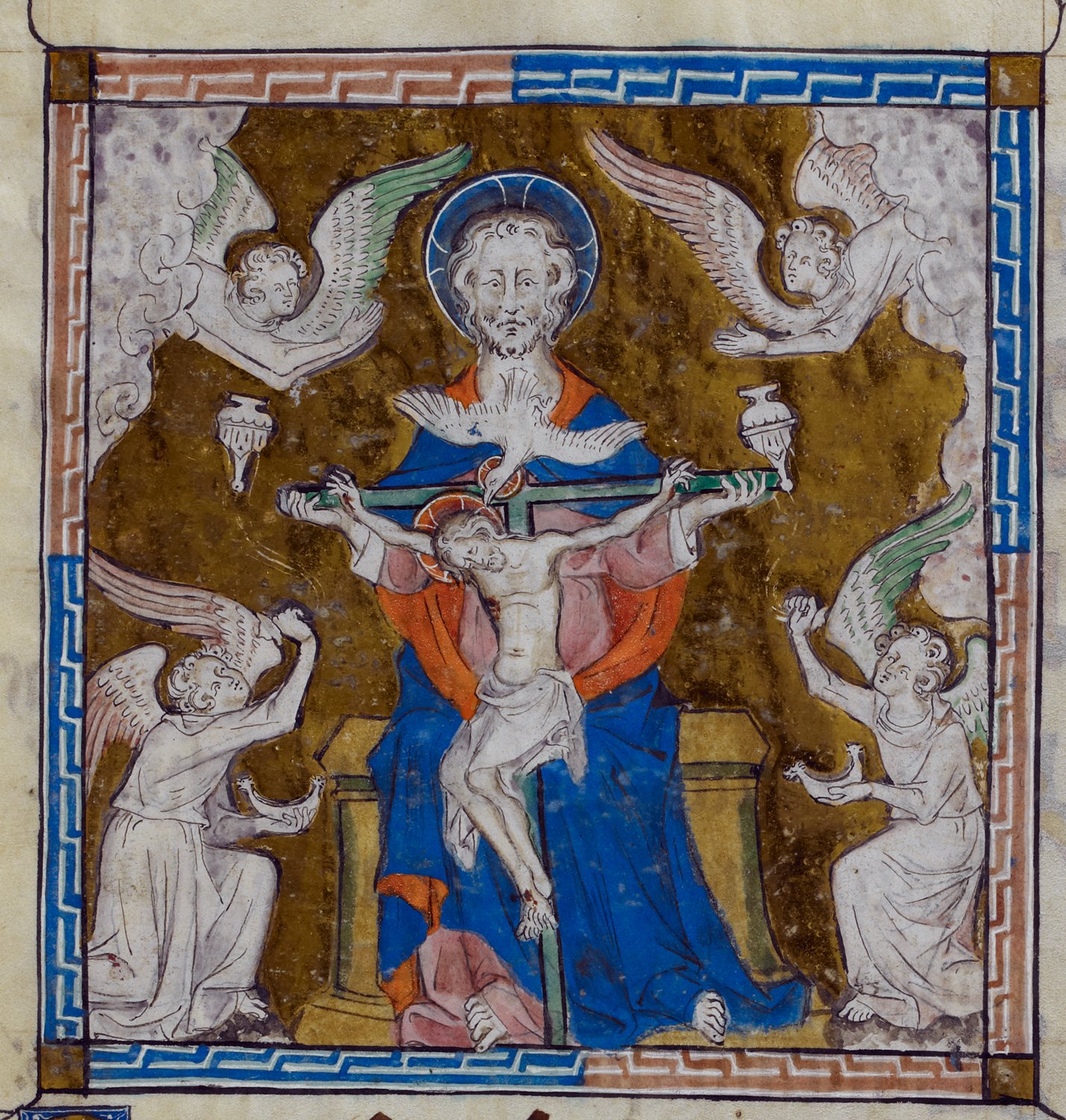
The whole of theology is about "connecting the dots" throughout Sacred Scripture; we have been doing exactly that in this series on Ascension and Pentecost. In this post, let's start with Acts 1:8 and try to do some serious dot-connecting:
But you shall receive power when the Holy Spirit has come upon you; and [καὶ] you shall be My witnesses in Jerusalem and in all Judea and Samaria and to the end of the earth.The Lord Jesus is making a connexion between the Outpouring and witness: "...when the Holy Spirit has come upon you; and you shall be My witnesses..." The Greek conjunction here--καὶ--meaning 'and,' 'even,' 'also' brings together two different ideas to form a composite; in this case, the composite is "Holy Spirit" and "witness."
The modality of the Apostolic witness post-Pentecost is decidedly different than it was pre-Pentecost; the "witness" of Sts James and John to call down lightning upon the unbelievers (Lk 9:54) or the "witness" of St Peter slicing off Malchus' ear (Jn 18:10) was not of the same supernatural quality as the Apostolic preaching on the morning of Pentecost.
But it is facile to say that the Holy Spirit empowered the infant Church for mission. While that's certainly true, it underestimates the kick-in-the-stomach quality of what is really going on: Preaching the Gospel of Jesus' Lordship. Notice the "apocalyptic" tone of the Apostolic preaching that stresses the authority of Jesus Christ:
Let all the house of Israel therefore know assuredly that God has made Him both Lord and Christ, this Jesus whom you crucified (Acts 2:36);
You know the word which he sent ot the sons of Israel, preaching Good News of peace by Jesus Christ--He is Lord of all... (Acts 10:36);
And He commanded us to preach to the people, and to testify that He is the One ordained by God to be judge of the living and the dead (Acts10:42);
The times of ignorance God overlooked, but now commands all men to repent, becuase he has fixed a day on which he will judge the world in righteousness by a Man whom he has appointed... (Acts 10:31).Later, St Paul would say:
For what we preach is not ourselves, but Jesus Christ as Lord... (2 Cor 4:5).It was not only by the power of the Holy Spirit that the Apostles preached the Lordship of Jesus; it was, more precisely, after the enthronement of Jesus at the Father's right hand and then imbued with His power outpoured that the Apostles preached this Good News.
"Preached this Good News," indeed. The Greek word for "preach" and for "Gospel" are not religious words--they are political words. "Preach"--κηρύσσω--refers to the heralding on behalf of a king or an emperor and only later took on the distinctive Christian meaning we know now. To "preach" is not simply to give a homily or to sermonize, but to declare something on behalf of a reigning monarch. For Christians to preach, then, is to declare tidings on behalf of the risen, exalted, glorified Lord who has ascended into heaven and is enthroned at the Father's right hand. To preach is to declare not merely a new political order but a renewed cosmic order where the Lordship of Jesus is universal, absolute, and inescapable.
"Good News" or "Gospel" is likewise a political word. The accession of a new Roman Emperor or a Roman victory in war was called εὐαγγέλιον, 'gladsome tidings.' Christians co-opted this word to describe the real "good news," namely that God is in control through the risen, exalted, and glorified Lord Jesus. This is precisely why Mark's gospel begins the way it does: Recall that it was compsed at Rome, the seat of the Roman Emperor: "The beginning of the Gospel of Jesus Christ, the Son of God" (Mk 1:1). This verse was a slap across the face of Caligula, Claudius, and Nero, as if to say: "Caesar does not bring good news, but Christ does!" Not only that, but Augustus had declared the Roman Emperor to be divi filius, "divine son"; do you see how St Mark addded insult to injury by declaring that not only did Christ bring Good New, but also that Christ, not Caesar, is the "Son of God"?
To preach the Gospel is to upset the worldly order by declaring the glad tidings of Jesus' Lordship; the ministry of evangelisation, then, is to "save" people from the ultimate Judgment by inviting them to submit themselves to the authority of Jesus Christ. This is exactly what St Peter meant when he quoted the prophet Joel, "And it shall be that whoever calls on the name of the Lord will be saved" (Acts 2:21).
What we read in Acts is, of course, not verbatim; moreover, St Luke expects us to 'fill in the blanks,' as it were, and the rest of the passage from Joel (which is read at the Solemn Vigil of Pentecost) makes this abundantly clear. Recall what I said in the previous post about Mount Zion being the place from where the king reigns--
And it shall come to pass that all who cal upon the name of the Lord shall be delivered; for in Mount Zion and in Jerusalem there shall be those who escape, as the LORD has said, and among the survivors shall be those whom the LORD calls (Joel 2:32).The Upper Room--where the Holy Spirit was first outpoured--was (and is) on Mount Zion, and it was precisely from Mount Zion that the Apostles preached the Gospel of the King and His Kingdom (cf Psalm 110; Isaiah 2).
Returning to where we began, Acts 1:8 connects mission to the Ascension and Pentecost; the longer ending of Mark does, too:
Go into all the world and preach the Gospel to the whole creation... So then the Lord Jesus, after He had spoken to them, was taken up into heaven, and sat down at the right hand of God (16:15, 19).But where Jesus reiterated the Great Commission (please--Mt 28:16-20 and Mk 16:14-20 are two different events!) and where He ascended to the Father is also richly revealing: It took place on the Mount of Olives (Acts 1:12; cf Lk 24:50), which is on the eastern side of the Valley of Jehosophat, with Jerusalem to the west. Why here?
Recall the "Olivet Discourse" of Jesus (Mt 24:3ff) where He spoke, among others, of the End of All Things. Again, why here? Because it stands beside the Valley of Jehosophat, where both the prophet Joel and where theologians say the Last Judgment will take place (Joel 3:2, 12, 14). By gathering at the Mount of Olives, Jesus is making at least two points: First, to command the Apostles to preach the mercy of the Just Judge right beside where the Last Judgment will some day take place, and by ascending to the Father's right side, to make the point that Jesus is precisely the Father's own Mercy that is being preached. More on that in the next post.
This, then, ought to give us a renewed understanding of Romans 10:9, "...if you confess with your lips that Jesus is Lord, and believe in your heart that God raised Him from the dead, you will be saved." This is not a matter of merely personal belief because, as Paul said:
Since we have the same spirit of faith as he who wrote, "I believed, and so I spoke," we too believe, and so we speak, knowing that he who rasied the Lord Jesus will raise us also with Jesus and bring us with you into His Presence (2 Cor 4:13-14).It is not simply "saying" by the Holy Spirit that we say "Jesus is Lord" (1 Cor 12:3); it is rather "speaking out loud" (λαλῶν) and "publicly declaring" (ὁμολογήσῃς) the Lordship of Jesus by way of witness that we fulfill the Church's missionary mandate.
And we should think of "mission" in political terms, too: The Church is the diplomatic mission of the Lord Jesus Christ to the world, declaring His gift of grace, mercy, and salvation.






